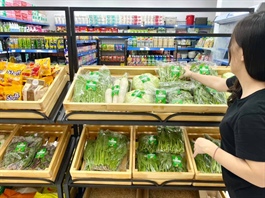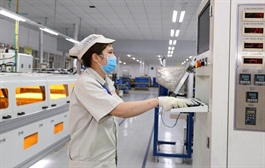Number of Vietnamese Samsung suppliers increases 10-fold
Number of Vietnamese Samsung suppliers increases 10-fold
The number of Vietnamese first- and second-tier suppliers in South Korea-based Samsung Group’s global supply chain increased by nearly 1,000 percent, from 25 in 2014 to 257 at the end of last year, according to Samsung Vietnam Complex general director Choi Joo Ho.

Choi told Tuoi Tre (Youth) newspaper that Vietnam has created several policies which encourage the development of supporting industries, thereby allowing local enterprises to join global supply chains.
In response to these policies, Samsung Vietnam has sought out new Vietnamese suppliers and entered into cooperative agreements with the Vietnamese government in order to develop supporting industries.
In particular, Samsung’s experts from South Korea have supported nearly 400 Vietnamese companies since 2015 in improving their competitiveness and product quality.
As a result, the productivity of Vietnamese companies has surged 40 percent, while faulty products have halved.
In addition, 33 Vietnamese companies are currently prioritized to become suppliers of Samsung Vietnam.
In 2019, Samsung Vietnam signed a memorandum of understanding with the Vietnamese Ministry of Industry and Trade on the training of Vietnamese molding technicians.
Under the four-year program, Samsung has so far helped Vietnam train 200 molding technicians. To date, more than 100 technicians have been beneficiaries of the program.
Samsung Vietnam also inked a separate memorandum of understanding with the Ministry of Industry and Trade last year to develop a smart factory project, Choi shared.
In particular, Samsung has shared its smart manufacturing knowledge with 50 local enterprises under a two-year roadmap. As of the end of 2022, 26 local companies had received Samsung’s consultancy over the smart factory model.
Choi said that participating enterprises have been trained and instructed on how to map out their strategies and build a roadmap to develop smart factories.
In addition, their management systems have been re-designed to optimize and ensure smooth and continuous information flows.
Digital and automated platform management solutions transferred directly by Samsung’s experts have helped change both management and production systems.
“These changes are the foundation for enterprises to improve their competitiveness to meet global standards, thus joining not only Samsung’s supply chain but also the global supply chain network, Choi Joo Ho said.























